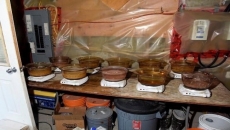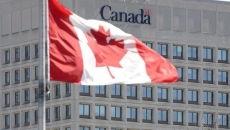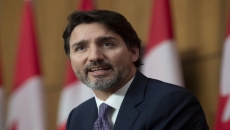An RCMP officer involved in the arrest of a Huawei executive at Vancouver's airport says a flow of some information between Canadian and foreign agencies is typical in extradition requests but he had no direct contact with U.S. officials the night before her arrest.
Const. Winston Yep said in B.C. Supreme Court Monday it was an idea shared by text message from another officer and one that Yep didn't believe was wise because it could compromise public safety.
Const.Yep is the first witness to give testimony in an evidentiary hearing for Meng Wanzhou, whose legal team hopes to gather evidence this week to support its claims her arrest was unlawful.
Meng is wanted on fraud charges in the United States that both she and Huawei have denied.
Yep is the officer who told Meng of her arrest through a Mandarin interpreter, three hours after she was detained at Vancouver's airport in 2018.
Yep told the B.C. Supreme Court hearing that he was in the RCMP's foreign and domestic liaison unit when he received a request Nov. 30 from the United States via Canada's Department of Justice to arrest Meng.
He says beyond the request for Meng's extradition, United States officials also asked that her electronics be placed in a specialized bag that prevents content from being erased remotely.
He says nothing about the request struck him as unusual.
"It was part of the arrest process," Yep said.
Yep says Canadian and foreign agencies communicate with each other, but there are limits on some personal information protected by privacy laws.
He says the RCMP and Canada Border Services Agency are partners and also share information.
Yep says Meng was the third person he had ever arrested because of an extradition request. He was in the midst of conducting his second such arrest on Nov. 30, 2018, just one day before Meng was arrested, when he received the request about her.
When he read the record of case, he says he realized it was a high-profile arrest because he knew Huawei was one of the largest telecommunications companies in the world, although he had not heard of Meng before.
Yep says he travelled with a colleague to Vancouver's airport to confirm Meng was on her flight, but they had not formulated a plan beyond that.
The witnesses called to testify in court this week have been requested by Meng's defence, but a lawyer for the Attorney General of Canada was the first to question him.
About 10 witnesses are expected to testify over the course of this week.
The defence team is gathering evidence that it hopes to use in arguments next year in a hearing over whether Meng was subject to an abuse of process.
In addition to arguing her arrest and detention were unlawful, Meng's lawyers allege comments from U.S. President Donald Trump show she is being used as a bargaining chip in the relationship between China and the U.S.
Associate Chief Justice Heather Holmes, who is hearing the case, is also considering whether to allow another abuse of process argument to proceed alleging that the United States misled Canadian officials in the summary of allegations it provided to them.
Meng's arrest has strained relations between Canada and China.






